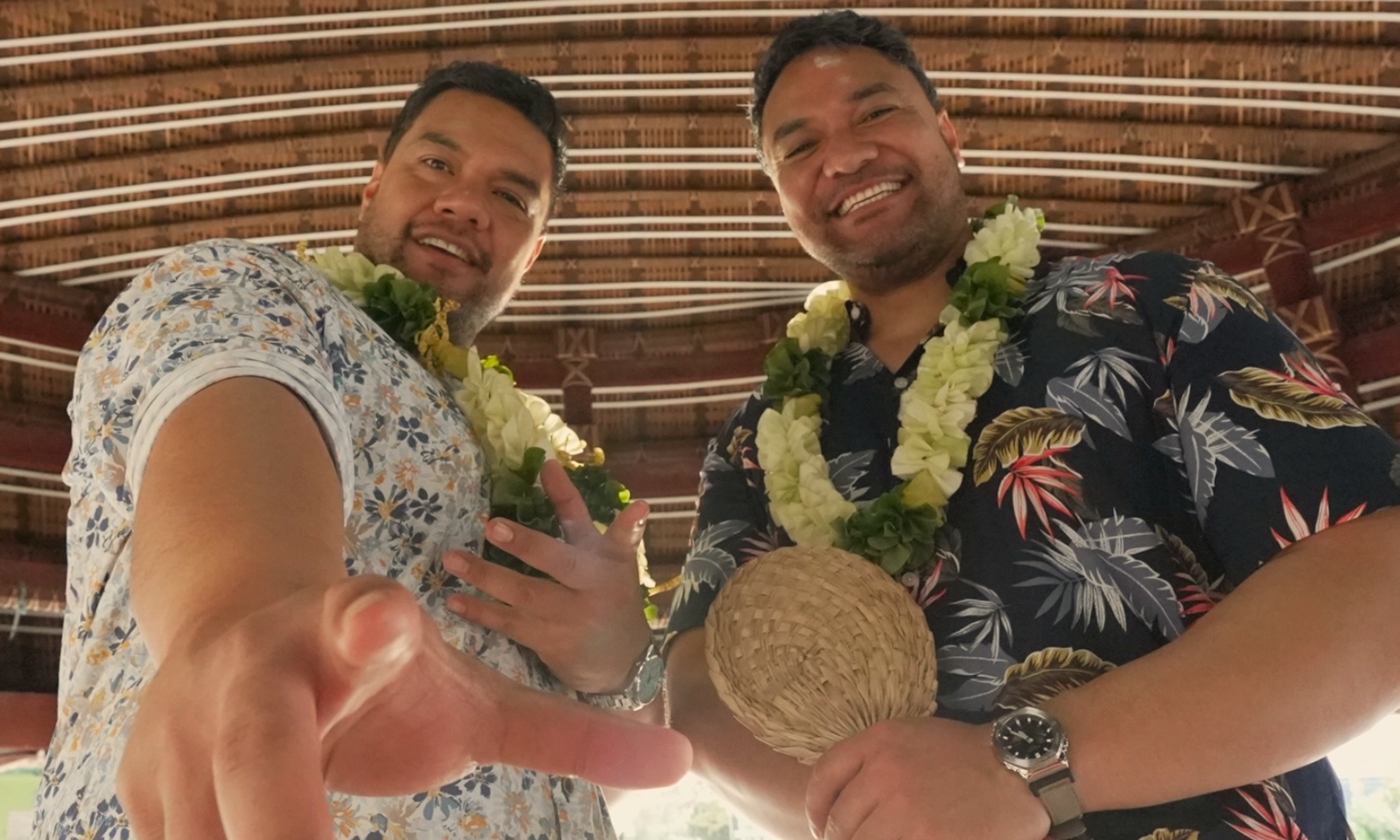
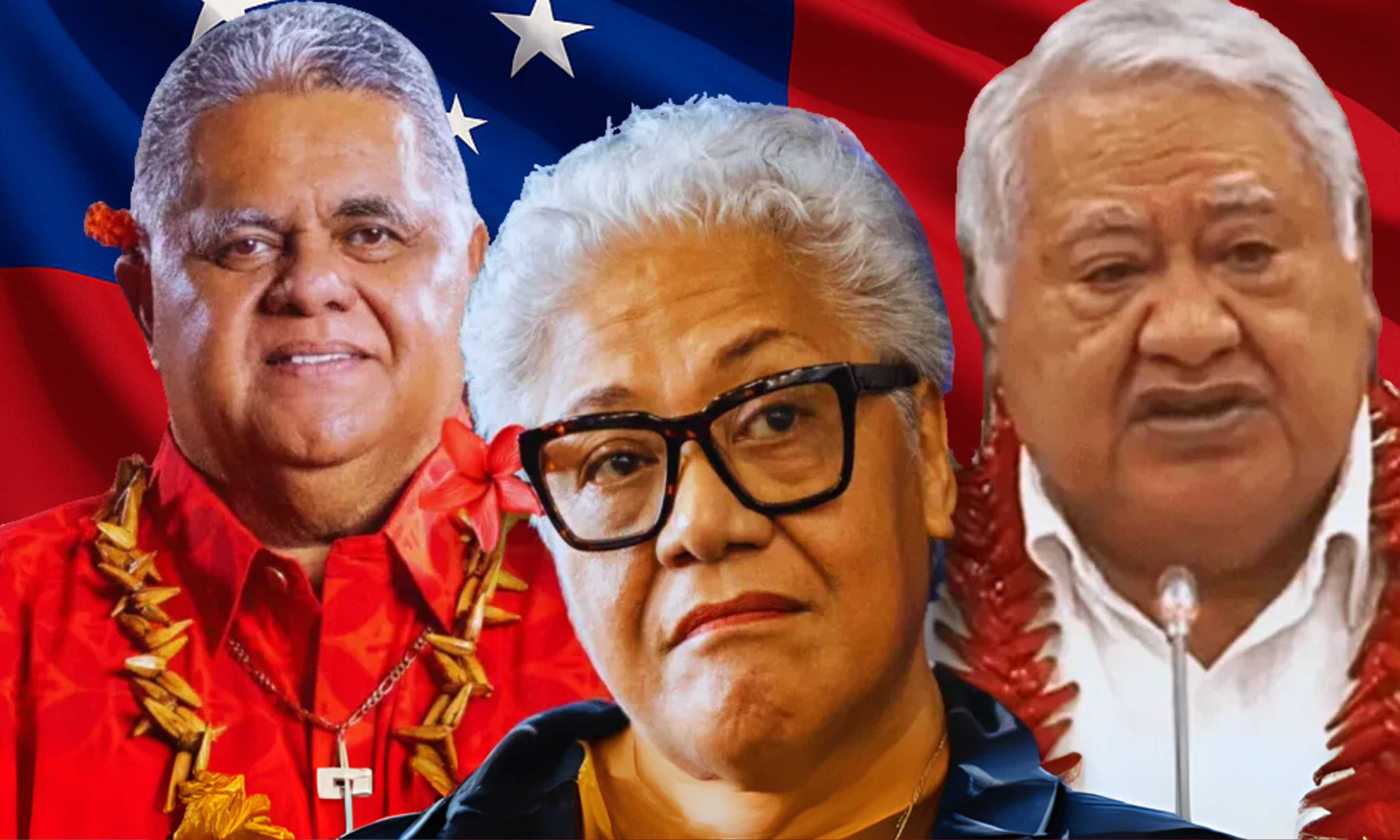
The key players, from left, Laaulialemalietoa Leuatea Polataivao Schmidt, Fiamē Naomi Mataʻafa, and Tuilaʻepa Saʻilele Malielegaoi.
Photo: RNZ Pacific/123RF/Samoa Government/FAST Party.
Sāmoa 2025 general elections: A key vote for FAST, HRPP and the rise of Fiamē's SUP
In the final of a two-part series, PMN News Senior Reporter Renate Rivers explains who the key players are and why this election matters.



Realm relations in focus as Tokelau-NZ marks 100-year history

‘One of our most trusted leaders’: Tributes flow for a beloved rangatira
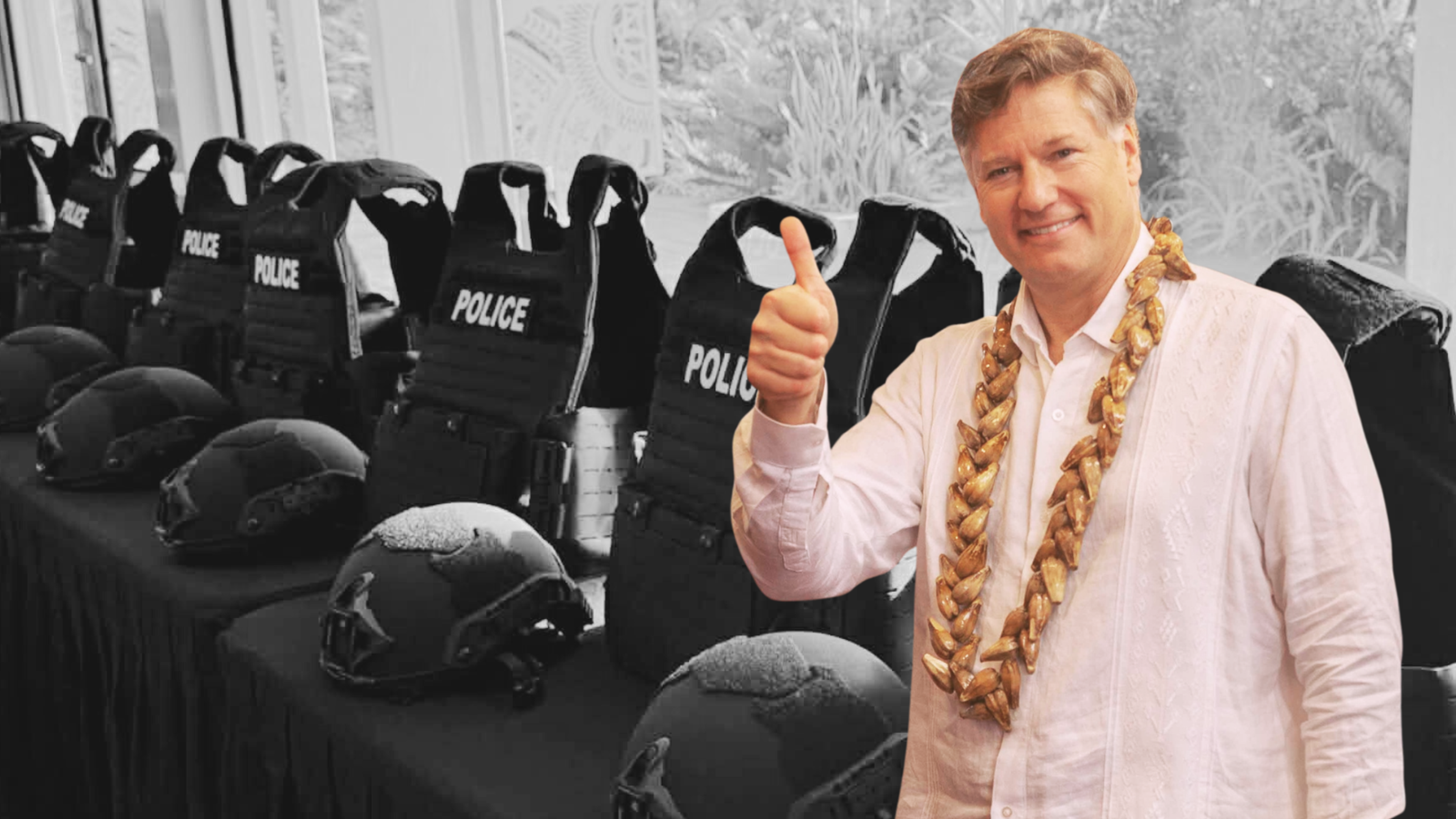


The Sāmoan Tenor named Pati who turned disadvantage into an operatic destiny

Realm relations in focus as Tokelau-NZ marks 100-year history

‘One of our most trusted leaders’: Tributes flow for a beloved rangatira

On 29 August, Sāmoans will go to the polls to elect their parliamentary representatives for the next five-year term.
This guide provides an overview of the main political players, the contentious issues, and why this election matters.
Fa’atuatua i le Atua Sāmoa ua Tasi (FAST) swept to victory in the 2021 election and has held the reins of executive and parliamentary power for the past four years.
The party’s unravelling - from being the “engine of change” that toppled HRPP to a Frankenstein of internal divisions, court battles, police investigations, and dirty politics - has been a disappointing turn for a party that once held great promise.
Party leader Laaulialemalietoa Leuatea Polataivao Schmidt is pulling out all the stops to regain lost support through a relentless roadshow that has criss-crossed the islands, reached into every district, and landed at the doorsteps of community maota-fono over the past month.
Laaulialemalietoa remains an unpredictable force, just as capable of altering the course of Sāmoa’s history as he is of striking a match and burning it all down.
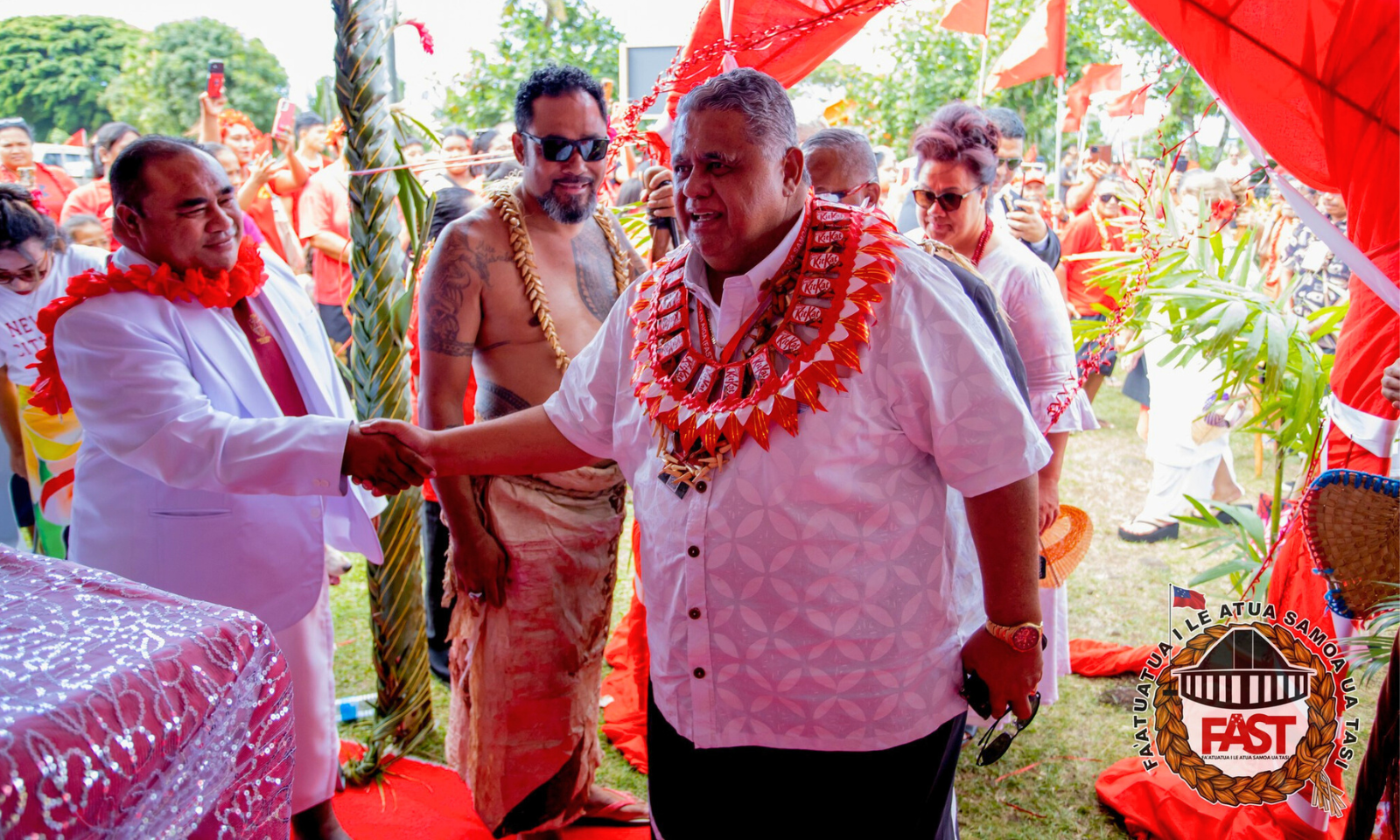
FAST Party leader Laaulialemalietoa Leuatea Polataivao Schmidt meets supporters on the campaign trail. Photo/FAST
A skilful orator, seasoned politician, and businessman of some repute, Laaulialemalietoa has made it clear that FAST will not consider a coalition with either HRPP or SUP. They are aiming for an outright majority, and if the fervour of FAST’s “red army” of online supporters is any indication, they expect nothing short of a landslide victory.
Political heavyweight, the Human Rights Protection Party (HRPP) has been a dominant force in Sāmoa’s political landscape for more than 40 years under the leadership of former Prime Minister Tuilaepa Sailele Malielegaoi. Their shock defeat in 2021 pushed them into unfamiliar territory - as the opposition - squaring off against upstart victors, FAST.
Four years in opposition have provided HRPP with a unique perspective, allowing them to observe how others steer Sāmoa’s va’a. They’ve used this downtime to prepare for elections with a refreshed campaigning approach. The party has retooled its manifesto to reflect what it claims the public is demanding: relief from the severe cost-of-living crisis, deeper consultations on major national decisions, and a sweeping overhaul of social services.
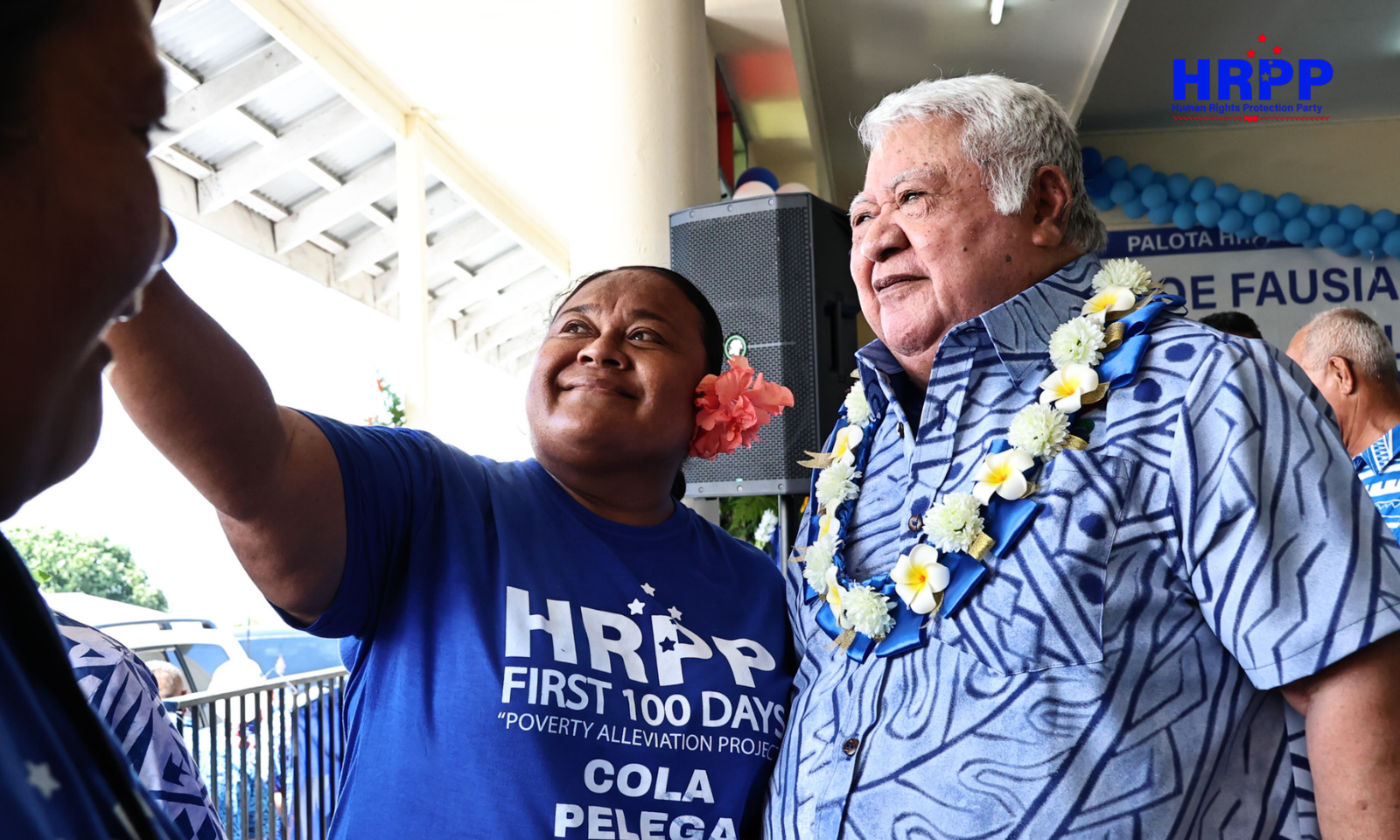
HRPP leader and former Prime Minister Tuilaepa Sailele Malielegaoi is among the key figures in this election. Photo/HRPP
With a who’s who of senior members and sub-committees stacked with an experienced cohort of former heads of government agencies, along with their loyal and almost unshakeable base, HRPP is banking on public fatigue with FAST’s turmoil to turn the tide back in its favour. Whether it’s nostalgia for the stability of their long reign or a calculated choice for change from the current chaos, HRPP’s campaign has the quiet confidence of a party that knows how to lead.
Caretaker Prime Minister Fiamē Naomi Mataʻafa leads the newest player in the political arena, the Sāmoa Uniting Party (SUP). This party emerged from FAST’s rupture and was established at speed after the dissolution of Parliament. The FAST split left Fiamē’s camp scrambling to form an election-ready machine, as many were still arguing that they were members of FAST before the clean break to launch SUP and contest the snap election.
The party formally launched in June, unveiled its manifesto in mid-July, and confirmed 26 candidates for the August race. To address the cost-of-living crisis, their agenda focuses heavily on financial relief, proposing to cut the VAGST from 15 per cent to 12 per cent, remove VAGST from freezer goods, scrap the electricity tax, trim import duties, and deliver a 20 per cent tax refund to taxpayers while keeping the district grants rolling at ST$1-2 million per constituency, scaled by size and need.
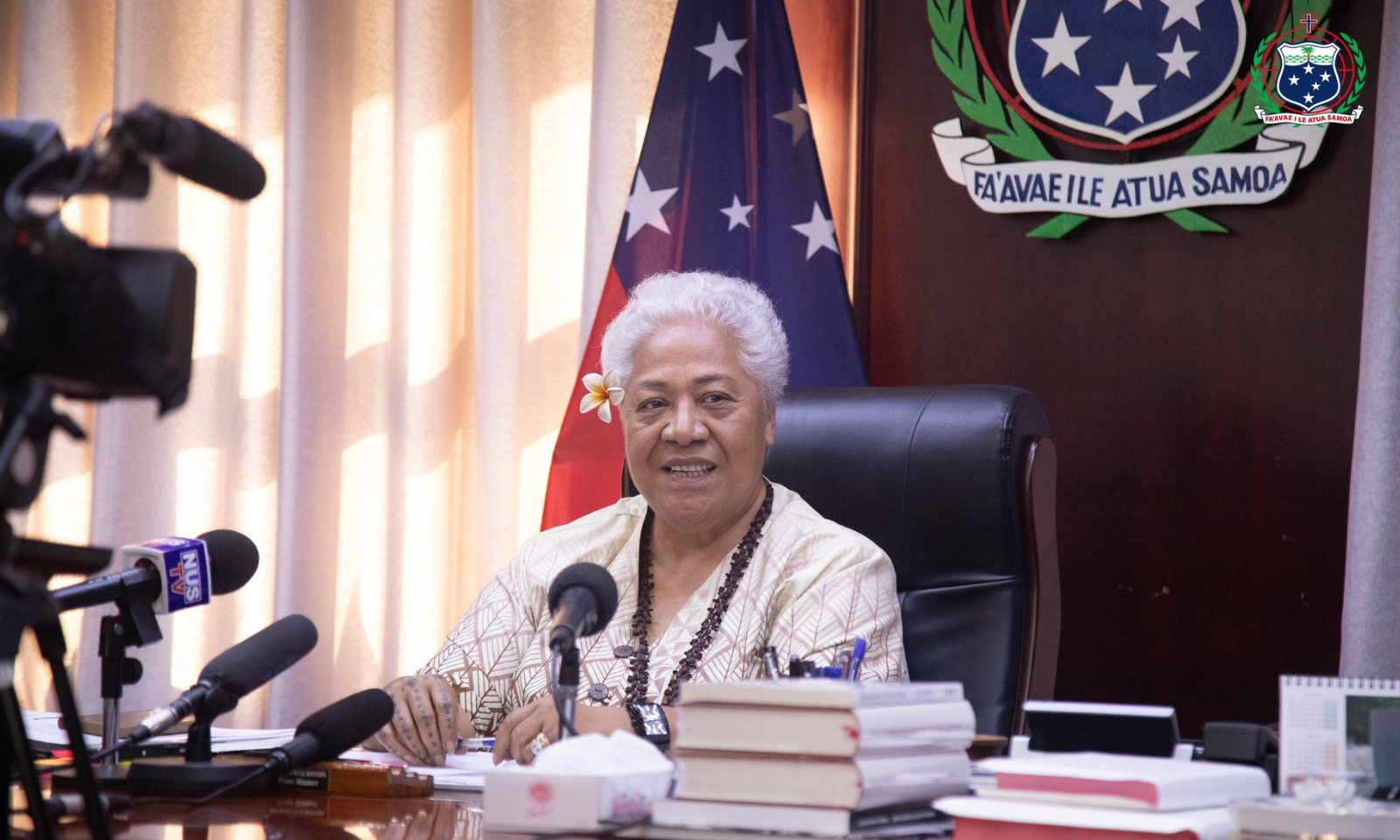
Prime Minister and former FAST Party leader, Fiamē Naomi Mata'afa, will contest the election under a new banner - the Sāmoa Uniting Party. Photo/
The party’s pitch is simple: steady the va’a, reinforce respect for the rule of law, ease living costs, and complete unfinished business such as free education from early childhood through tertiary levels, raising pensions, and advancing stalled reforms - now packaged and rebranded under a leader who has already worn the weight of government and now asks for a clean mandate with a new identity. Whether their late start proves a disadvantage or a rallying point remains to be seen.
As in the 2021 elections, Independents are expected to play a decisive role in shaping the next government. At the close of Sāmoa’s 17th Parliament in June, party standings were tight: FAST held 20 seats, HRPP 18, and the unofficial SUP 15. With such narrow margins and 187 candidates remaining to contest the election, independents are set to become key players - either making or breaking potential coalitions.
Heading into the August elections, strong campaigns from all major contenders make predicting a clear majority difficult. A coalition government appears the most likely outcome, although its makeup remains uncertain. FAST leader Laaulialemalietoa has already ruled out partnering with either of the two other main parties.
Watch Renate Rivers' chat with Pacific Mornings' host, William Terite, on the upcoming Sāmoa general elections below.
On paper, an “Independent Member” is exactly that: a candidate elected with no party printed on the ballot. But the law sharpens the stakes: if an independent joins a party before taking their oath, they must sit with that party for the full term. If they take the oath as an independent, they must remain independent for the entire term. Defections or crossing the floor carry major consequences as a seat becomes vacant if a party member resigns or changes party affiliation during their term, and even if an independent later joins a party or “holding yourself out” as a member of another (or unregistered) party can trigger the same result. This anti-defection framework is backed by the Constitution.
Parliamentary arithmetic also matters. A group needs eight MPs to be recognised as a party in the House. If a member takes the oath before their party notifies the Speaker, they are treated as an independent for the whole term, making pre-oath deals and declarations pivotal. And if a vacancy arises due to defection within six months of dissolution, there’s no by-election, which can harden the leverage of independents in late-term negotiations.
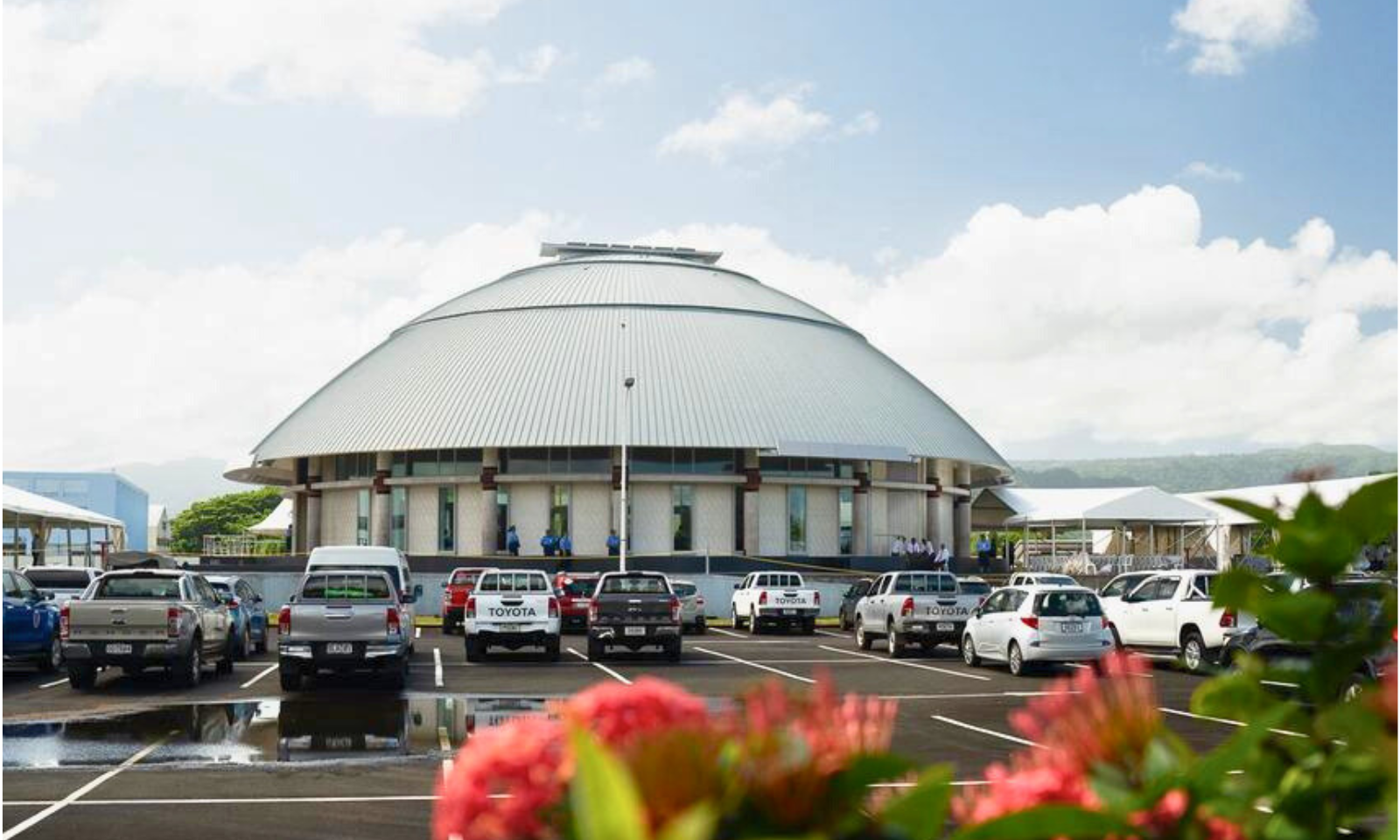
The House of Parliament at Mulinu'u holds 51 seats for each of the districts across the island nation. Photo/Junior S Ami
Why does this election matter?
It represents a chance to return to stability and secure a legacy. Sāmoa has already experienced a dramatic shift in leadership - both at the executive level with FAST taking over from HRPP, and within FAST itself, where internal divisions have led one faction to rally behind Fiamē, while the majority aligns with party chair Laaulialemalietoa. Now, political heavyweight HRPP is back with renewed energy, vying to reclaim its former dominance.
Sāmoa’s economy leans heavily on development aid, remittances, and tourism, making political stability non-negotiable. Regionally, complex geopolitical dynamics such as discussions around self-governance, the United States-China tussle for influence in the Pacific, and the diplomatic tensions ahead of the Pacific Islands Forum Leaders Meeting in the Solomon Islands next month demand the full attention of Sāmoa’s leaders. Failing to look beyond domestic politics risks leaving Sāmoa behind as pivotal decisions are made for our shared Blue Pacific continent. Not to mention, missing opportunities for growth.
As the first Pacific nation to gain independence, Sāmoa has long been regarded as the most stable island state in the region. The 29 August elections offer a chance to reset domestically, reassert Sāmoa’s voice of wisdom at the Pacific Islands Forum, and strengthen its position on the global stage.
This election cycle introduced a digital initiative aimed at fostering inclusivity and acknowledgement of Sāmoans living abroad. Over 11,700 applications for voter registration were submitted online, including 310 from overseas - mainly from New Zealand and Australia. The final roll, announced on 4 July, highlighted more than 102,000 people, about 87 per cent of Sāmoa’s estimated 117,000 eligible voters, had registered for the general election, completing the process with biometric data and photographs.
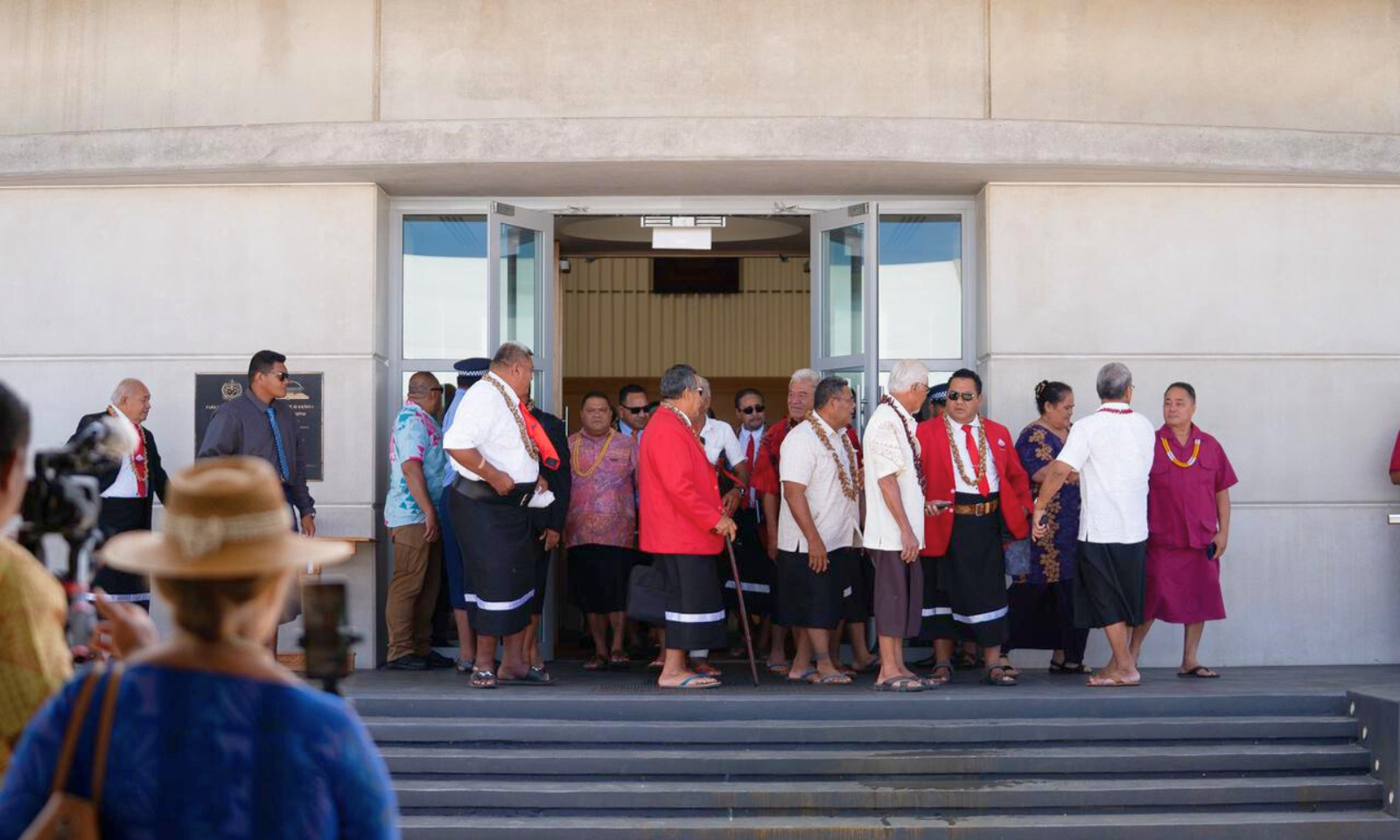
Sāmoa's general elections on 29 August, 2025, ia a highly-contested one with three major political parties vying for control of parliament. Photo/Junior S Ami
The Electoral Commissioner credits the high turnout to the new digital initiative, which provided online registration options alongside in-person registrations.
For everyday Sāmoans, this election could prove a blessing in disguise. HRPP’s decades in power brought development milestones under a steady, some would say, heavy-handed approach. FAST’s rise resonated with many, particularly in the diaspora, who felt their voices had been ignored and their contributions dismissed. Others celebrated seeing a woman take the nation’s highest office, believing the upheaval worthwhile for a chance to challenge the status quo.
The silver lining of the current political malaise that Sāmoa finds itself in is that the voters hold all the cards. Beyond the campaign rhetoric, impassioned pleas for divine intervention and promises to “do better” and “be better”, this election truly matters because it is not a foregone conclusion and the outcome truly rests in the hands of your average PaimaLafai*.
*Joe Bloggs